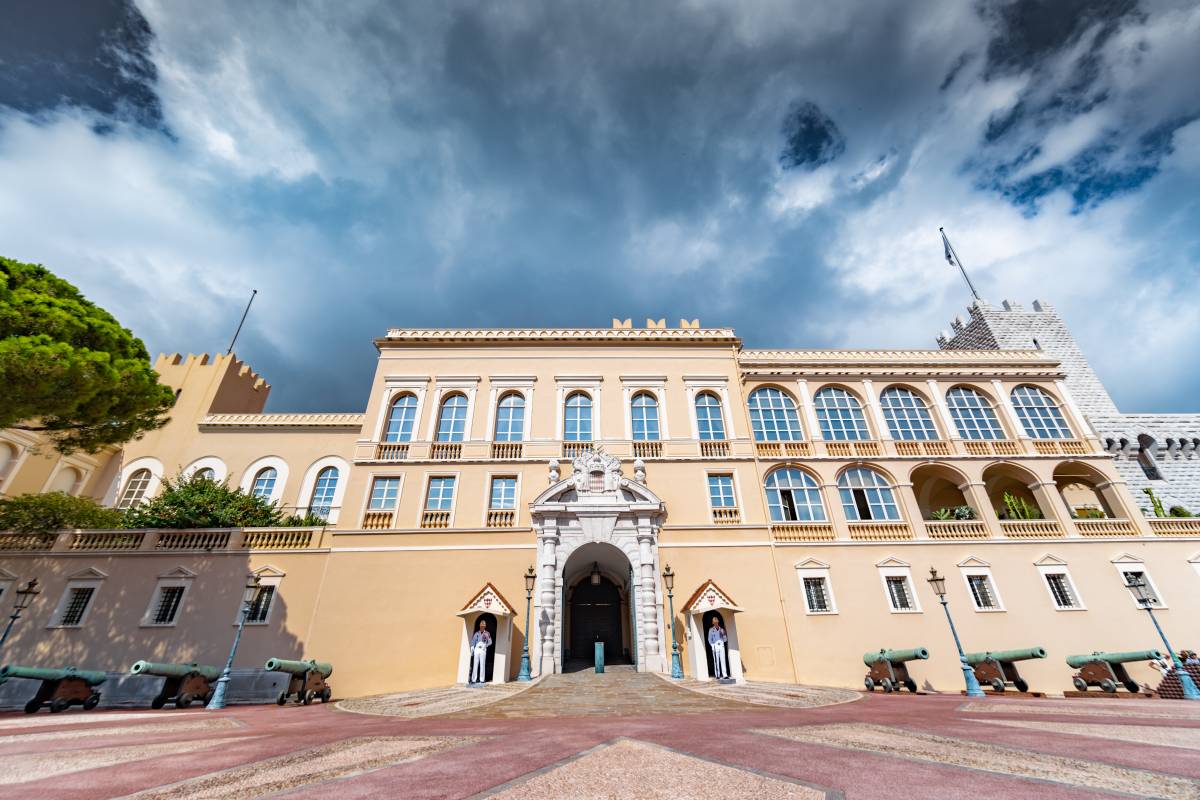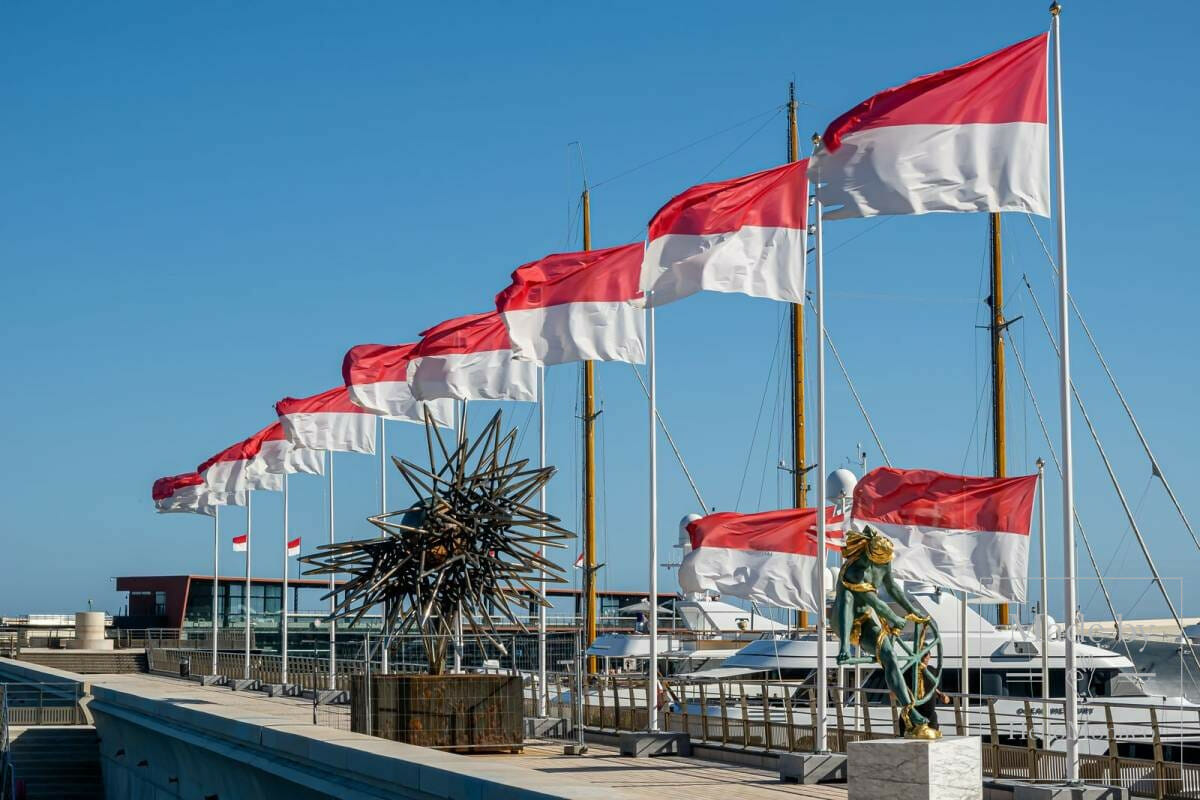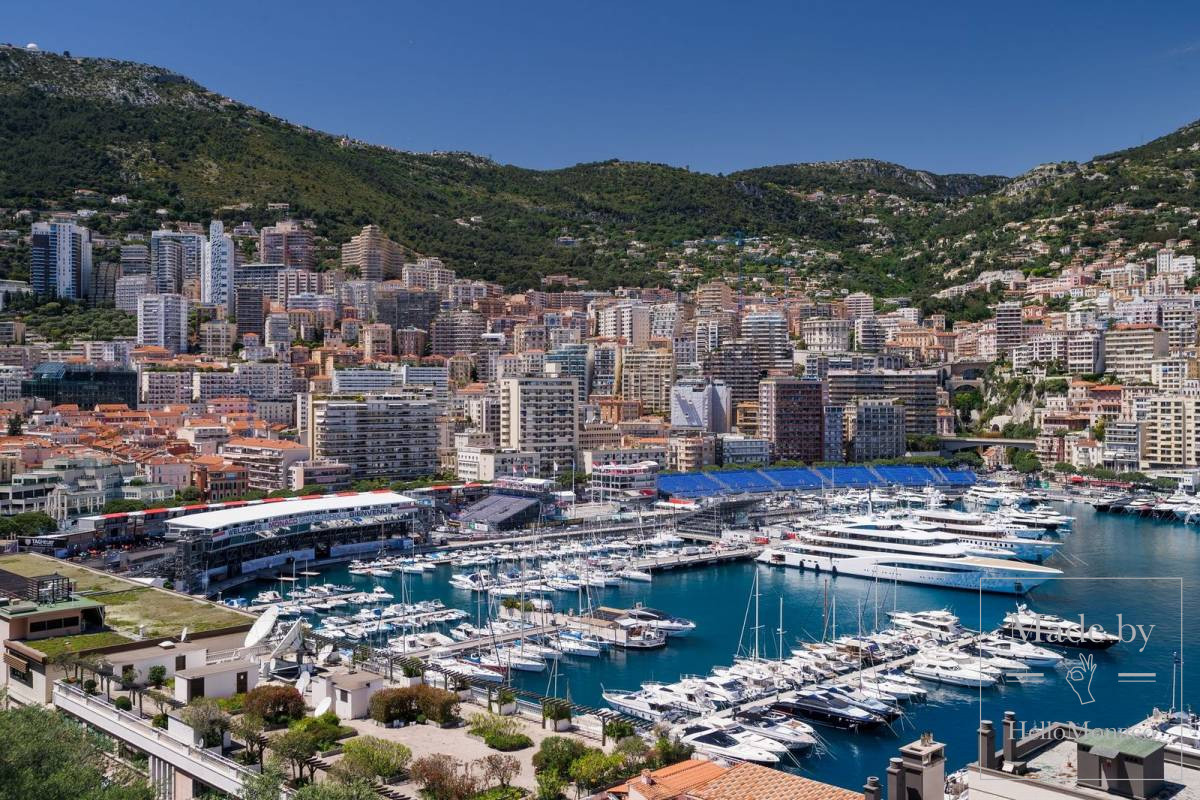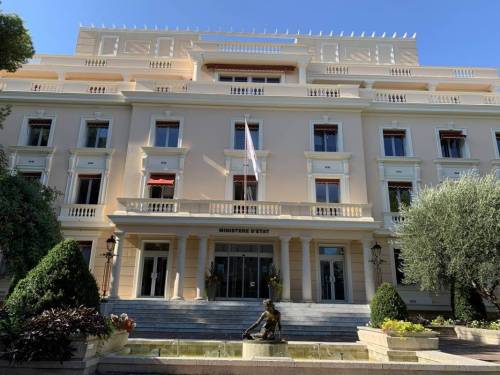A black and white projection tells a much-loved tale set in a beautiful town in the South of France. Villagers celebrate the day a baker decides to move to their town. Freshly baked bread is all that was missing in their idyllic lives. But celebrations are cut short when, on a warm summer evening, the baker’s much younger wife runs off with a handsome shepherd. The baker is heartbroken and can no longer bake. So the villagers assemble to bring the wife back to her husband so he can bake some more delicious bread for them.
The film, ‘La Femme du boulanger’ (‘The Baker’s Wife’) was directed by Marcel Pagnol in 1938 and was screened on 16 April 2024 at Monaco’s Théâtre des Variétés. The screening was part of a special tribute evening celebrating the 50th anniversary of the director’s death.
Friend of Prince Rainier III
Marcel Pagnol was a resident of the Principality from 1943 until his daughter Estelle passed away at the age of two, in 1954. A friend of Prince Pierre (1895-1964) and Prince Rainier III (1923-2005), Marcel Pagnol’s art was deeply inspired by time spent in the Principality.
In 1926, he created the play ‘Jazz’ which was performed for the first time at the Monte-Carlo Casino Theatre on 6 December 1926. The premiere of his film ‘Topaze’, in 1951 was also in Monaco. An honorary consul of Portugal, he participated in several important events in the Principality, being present during the 25th anniversary of the reign of Prince Louis II in 1947, as well as Prince Louis’s funeral. He attended Prince Rainier III’s marriage to Princess Grace. A member of the Literary Council since its creation in 1950, he chaired the jury of the first Television Festival in 1961. He worked with amateur comedians at the Monaco Studio, and collaborated with Monegasque publisher, Clément Pastorelly, for the publication of his books.
Prince Albert II pays a public tribute to Marcel Pagnol
“Parallel to the events to be organised in France, in Provence in particular, His Serene Highness the Sovereign Prince hoped that a day of homage would be devoted to this eminent man of letters, in order to make his work known to the new generations. In agreement with the Pagnol family, this day will take place on 16 April 2024, two days before the anniversary of the death of the writer, on 18 April 1974,” states the Princely Palace.
At 11 a.m. on 16 April, Prince Albert II paid a public tribute to the artist in the presence of school students at the stele located on Marcel Pagnol Square. At 3 p.m., a round table was held at the Théâtre des Variétés. Entitled “Pagnol le Monegasque” the event was organised by the Palais Archives and the Audiovisual Institute. Lecturers introduced the public to archives, audio-visual materials and unpublished thoughts and ideas about the artist. The round table featured readings and theatrical scenes performed by actors from the Studio de Monaco.
The first part of the round table touched upon the appeal of Monaco and opened with an excerpt from the play Jazz. The second part referred to “La Belle Époque à Monte-Carlo (1949-1954)” and opened with an unpublished performance of an unfinished screenplay that was going to be shot in Monaco called ‘Tombola’ or ‘L’Inconnue de Monaco’ (1949). The third part opened with a scene from the film Manon des Sources (1952), which Marcel Pagnol wrote in Monaco.
A restored version ‘La Femme du baker’ (1938) was then screened at 8 p.m. Based on a short story by Jean Giono, the screenplay, written by Marcel Pagnol, links the individual and the group together with honest and deep connections. Irony and compassion in precise and descriptive dialogue serve to identify the individual until the group and its hidden solidarity become revealed.
On Friday 19 and Saturday 20 April, two performances of excerpts from Marcel Pagnol’s theatrical repertoire will be given by the Studio de Monaco, also at the Théâtre des Variétés. An 80-page illustrated series will be published on the occasion of this fiftieth anniversary by the Nice-Matin group, including a chapter on Pagnol’s links with the Principality, on 28 February 2024.
The son of a schoolteacher
The eldest son of a schoolteacher, writing and dialogue were very important to a young Marcel Pagnol. His play ‘Topaze’, the story of a schoolmaster who was fired for being too honest, opened the doors to his success in 1928. When films were no longer silent, Pagnol developed a keen curiosity for cinema and saw an opportunity to give his plays a wider audience. For more than twenty years, his theatrical work merged with his filmography.
Marcel Pagnol’s plays and stories ‘Marius’ (1931), ‘Fanny’ (1932) and ‘Topaze‘ (1932) have been made and remade by various directors throughout the decades. They feature and reflect the place he was born and remained throughout his life. All of his pieces tell stories of people who express their truth beyond the lies that condemn them, beautifully walking the thin line between comedy and tragedy.
“Pagnol has often been caricatured as a skilful exploiter of southern folklore. However, he is a much more complete and modern filmmaker than has been said. His relative contempt for technique, his great freedom in directing the actors, his loyalty to the actors, his attachment to the land to which he gives an unforgettable presence, his way of letting the image speak for itself when the dialogue runs out, all this makes Pagnol one of the first ‘auteurs’ of French cinema,” states Vincent Vatrican, Director of the Audiovisual Institute of Monaco.








